The Cornell Lab Bird Academy › Discussion Groups › Virtual Educator Retreat: Inspiring Investigations through Citizen Science › Virtual Educator Retreat: Intro to Inquiry
-
As I read the article I was able to put my ideas into four different categories to help me describe inquiry. I used these four categories to create by concept map as well as modify my own definition of inquiry. Inquiry encourages students to look at the world around them and ask questions, which leads to the discovery of meaningful concepts and understandings. When participating in inquiry, students must take an active role in their learning and the teacher is no longer the provider of information, but instead on the journey along with the students as a learner themselves. The process of inquiry sparks curiosity within the students encouraging them to continue to explore and ask questions. Throughout the process students learn far more than content, but also develop skills such as observation, problem solving, and critical thinking, and risk taking.

-
For my initial definition, I said that "Inquiry is the process of exploring the world through questioning and experimenting, which can then lead to new questions to be explored." I see lots of parallels with the science and engineering process as I look at my concept map, and I think the 3-dimensional learning that we do in science fits very well with the inquiry process. A big part of the process is giving students more control over the process. The teachers acts as more of a facilitator and guide - which can be hard to do. As I think about it more, I would add student-driven to my initial definition of inquiry.

-
I believe that inquiry consists of many different things as I included in my concept map. One thing I did not include was student interest. If students don't have that spark of curiosity it will be hard to engage them.
-

-
As a newer teacher (just finished my second year), I am still getting a sense of what inquiry means in a classroom. Teaching is my second career, and my memories of science class during my middle and high school years were a lot like what was described in the reading: lectures, step-by-step investigations with specific/planned outcomes, and correct answers provided rather than a more "I think" approach. Several of the responses in the reading about inquiry being a metaphor for life and how we explore the world through inquiry as young children really resonated with me. It seems like we get away from that as we grow, especially during today's digital age where almost anything can be "Googled." I think inquiry should challenge the learner to think critically beyond the easy answer they can look up and explore the how/why. Inquiry should help them connect to the world around them and possibly explore solutions to a problem. As the teacher, we need to shift our role to more of a guide during inquiry investigations and experiences and learn to let go of our control. Allowing our students to engage in inquiry means we will not always have the "right answer" for them, and that is ok!

-
I really like how you included what inquiry looks like for the teacher versus what it looks like for the students. I also think your note about 'it's OK to not know all the answers' is an important reminder for all of us.
-
@Kate Thank you! One of the biggest lessons I've learned since making the career switch to teaching is that it is ok to say "I don't know, let's see if we can find out." :)
-
I love the bit about it's okay to not have the right answer...learning to embrace that struggle is so important. I think so much of learning is finding peace with struggle and being calm enough to work through it. What a terrific lesson for your students!
-
-
I think that inquiry is exposing students to a topic through various stimulus items then having them pose questions they have related to the topic. After the questioning phase the students will be able to explore the ideas they have through hands-on activities facilitated by the teacher but almost completely student led. In my understanding of inquiry, students come to their own understanding of concepts through exploration of materials and experimentation with ideas. These understandings may lead to new and more complex questions. These understandings should be communicated with the class and teachers can guide students to more work if their understandings are incomplete.

-
My initial definition (prior to reading the article) was: Inquiry is the action associated with an individual pending curiosity. After reading through the chapter there is A LOT of bullet points I'd like to add to below that definition, but I believe overall it still holds true. My main branches are:
- Skills
- Curiosity
- Empowerment
- Responsibility
 The inquiry circle was really interesting to learn about and I will use that cycle moving forward.
The inquiry circle was really interesting to learn about and I will use that cycle moving forward. -
Love your take with the Responsibility piece. I was focusing on the benefit of oneself and completely forgot about how inquiry can lead towards global change and movements.
-
I agree with Nicole's comment of inquiry being a natural part of children learning. Inquiry is a natural process of asking questions, observing and thinking. We are searching for meaning to understand something for ourselves. The skills of inquiry can be encouraged and practiced. The definitions of what 'Inquiry is Not' was helpful to me to further my understand of what Inquiry is.


-
I like your drawing of the inquiry process as a cycle. Last year we worked on a NASA guided project and the engineering design model we used reminds me of this quite a bit. I think any time we can get kids to understand that science and engineering isn't just a list of rigid steps but more of a natural process like art, then we're doing our jobs!
-
-
 To me, inquiry seems to be a more natural process of learning for children. Inquiry stimulates curiosity and encourages close observation of both the natural and material world. With teachers facilitating, students can think critically and logically while also taking risks. With structured classroom science activities, students are not discovering things on their own...they are being told what to look for and how to problem solve it.
To me, inquiry seems to be a more natural process of learning for children. Inquiry stimulates curiosity and encourages close observation of both the natural and material world. With teachers facilitating, students can think critically and logically while also taking risks. With structured classroom science activities, students are not discovering things on their own...they are being told what to look for and how to problem solve it.
Read More:
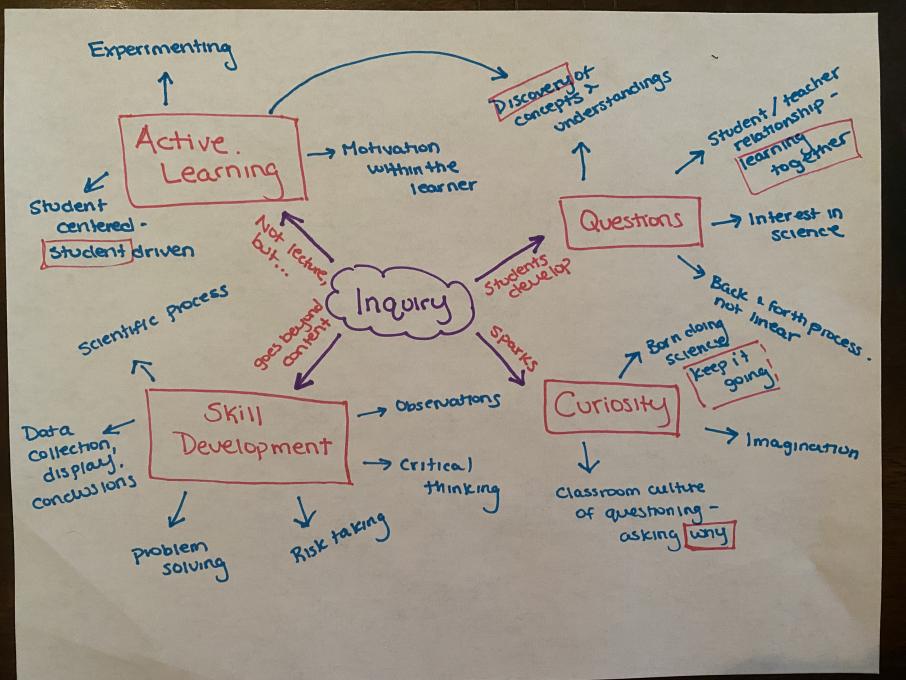
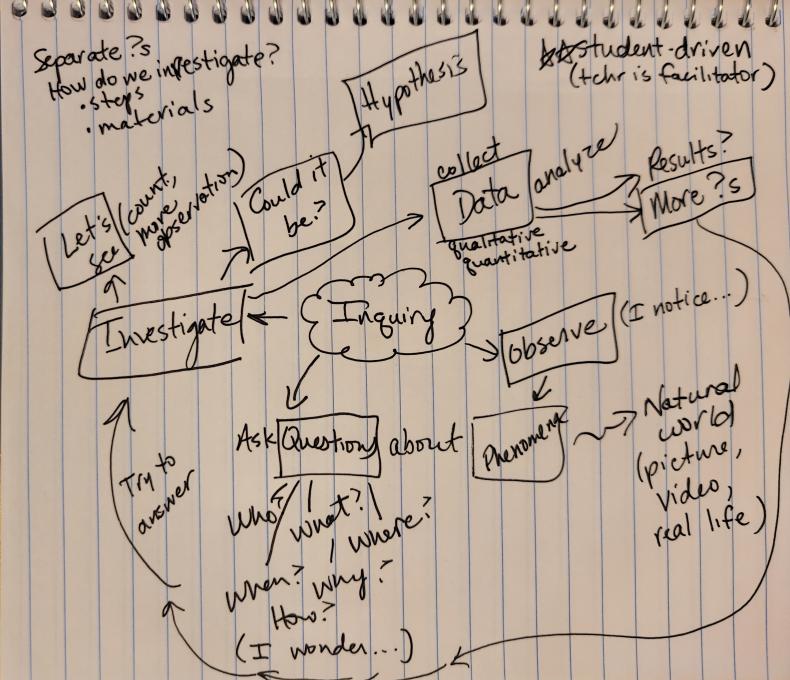
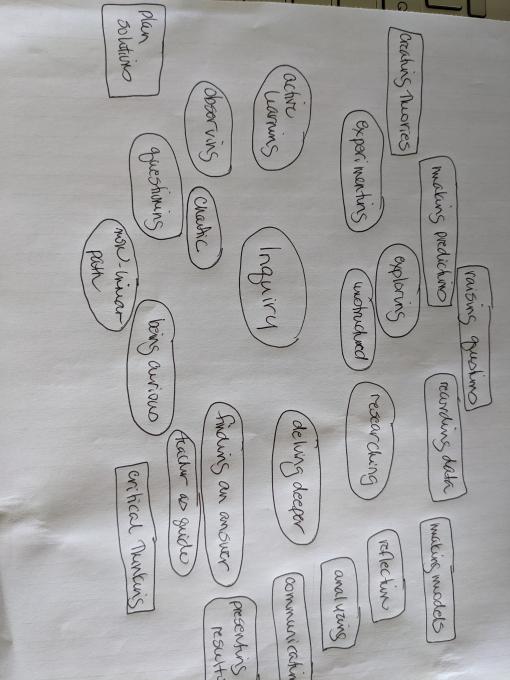
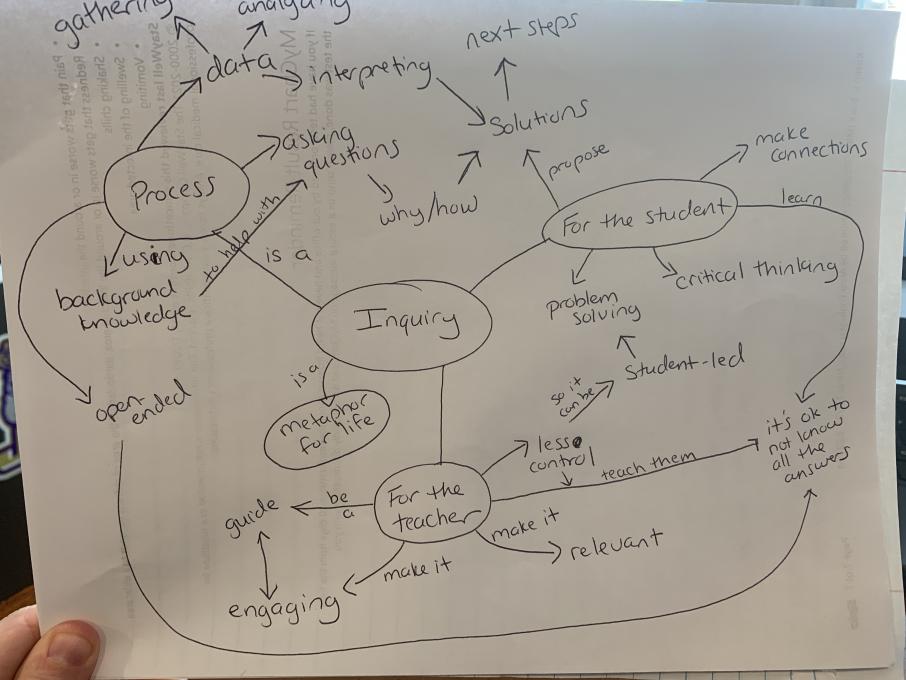
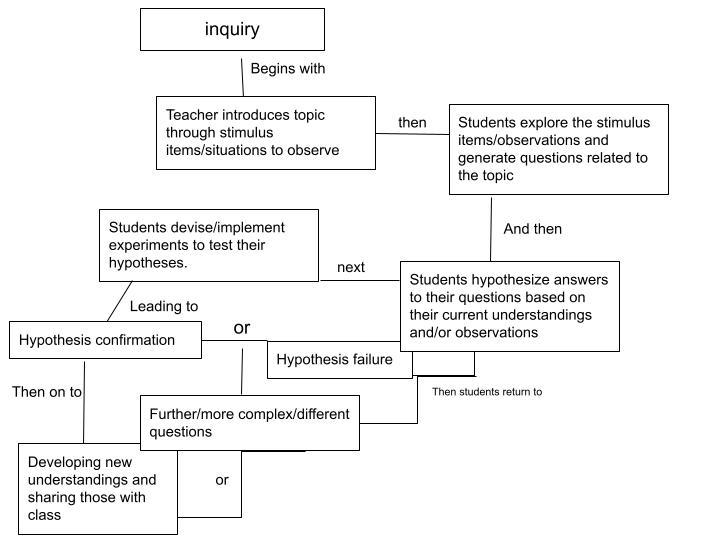
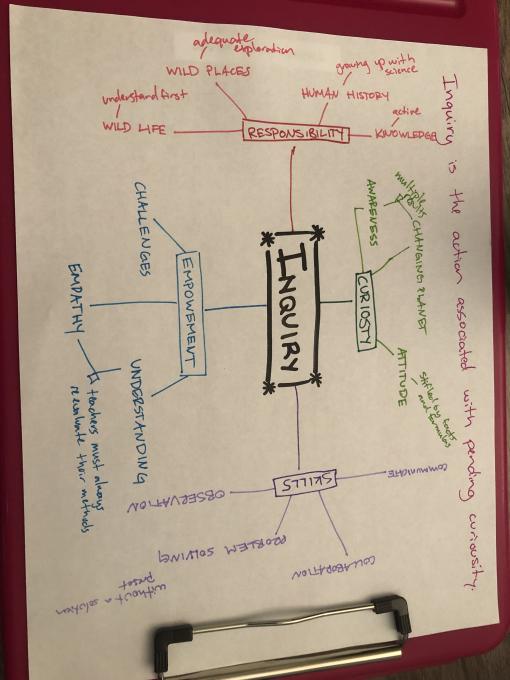 The inquiry circle was really interesting to learn about and I will use that cycle moving forward.
The inquiry circle was really interesting to learn about and I will use that cycle moving forward. 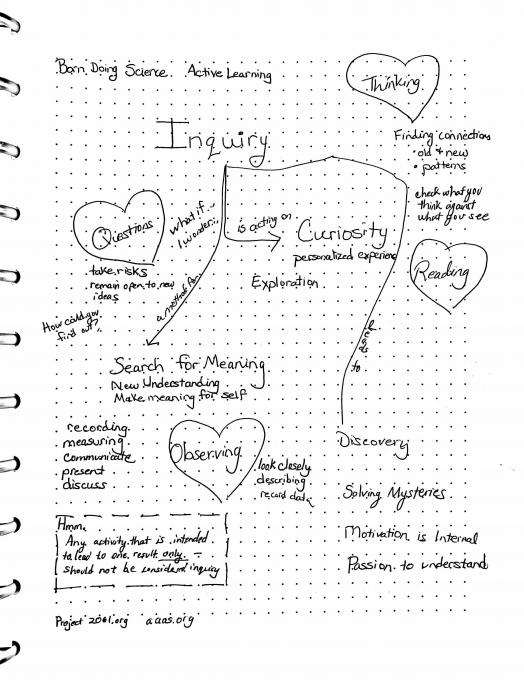
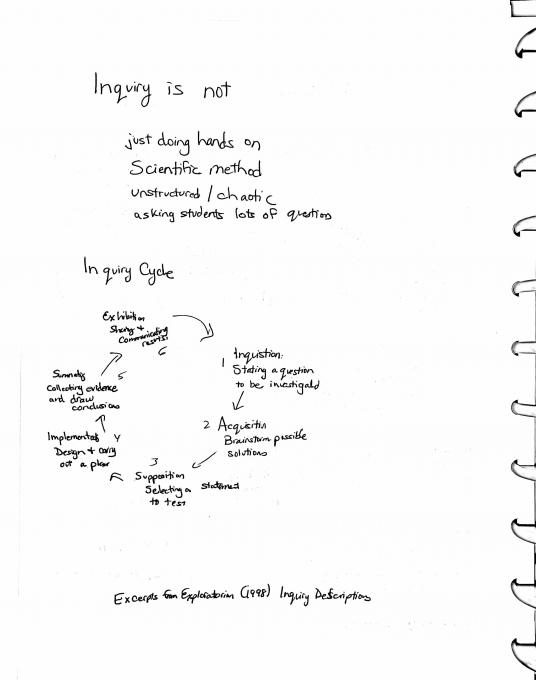
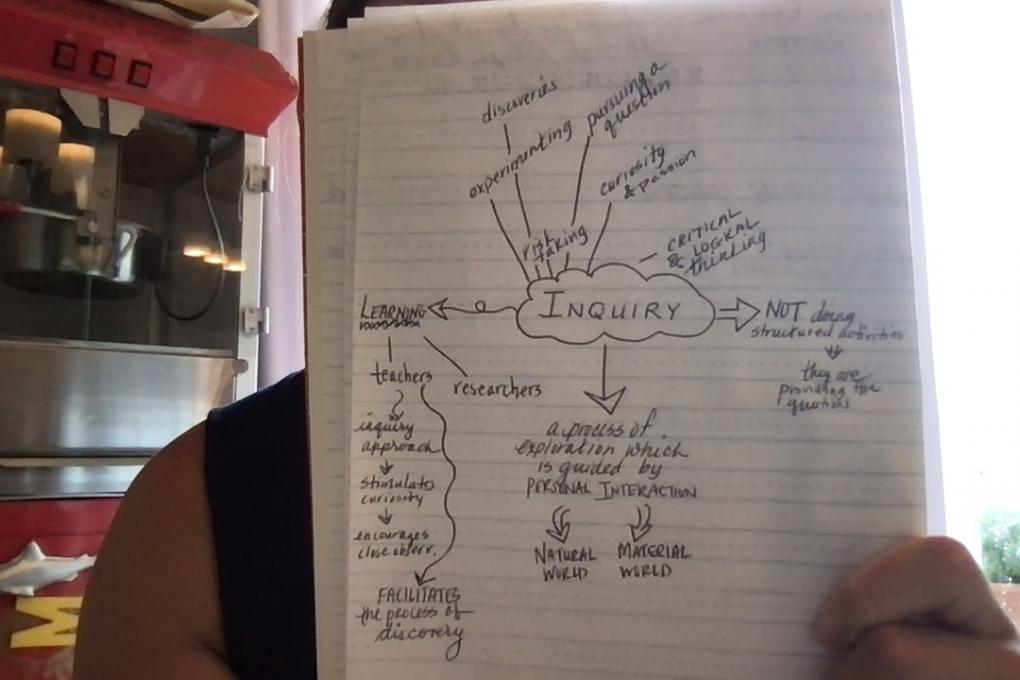 To me, inquiry seems to be a more natural process of learning for children. Inquiry stimulates curiosity and encourages close observation of both the natural and material world. With teachers facilitating, students can think critically and logically while also taking risks. With structured classroom science activities, students are not discovering things on their own...they are being told what to look for and how to problem solve it.
To me, inquiry seems to be a more natural process of learning for children. Inquiry stimulates curiosity and encourages close observation of both the natural and material world. With teachers facilitating, students can think critically and logically while also taking risks. With structured classroom science activities, students are not discovering things on their own...they are being told what to look for and how to problem solve it.